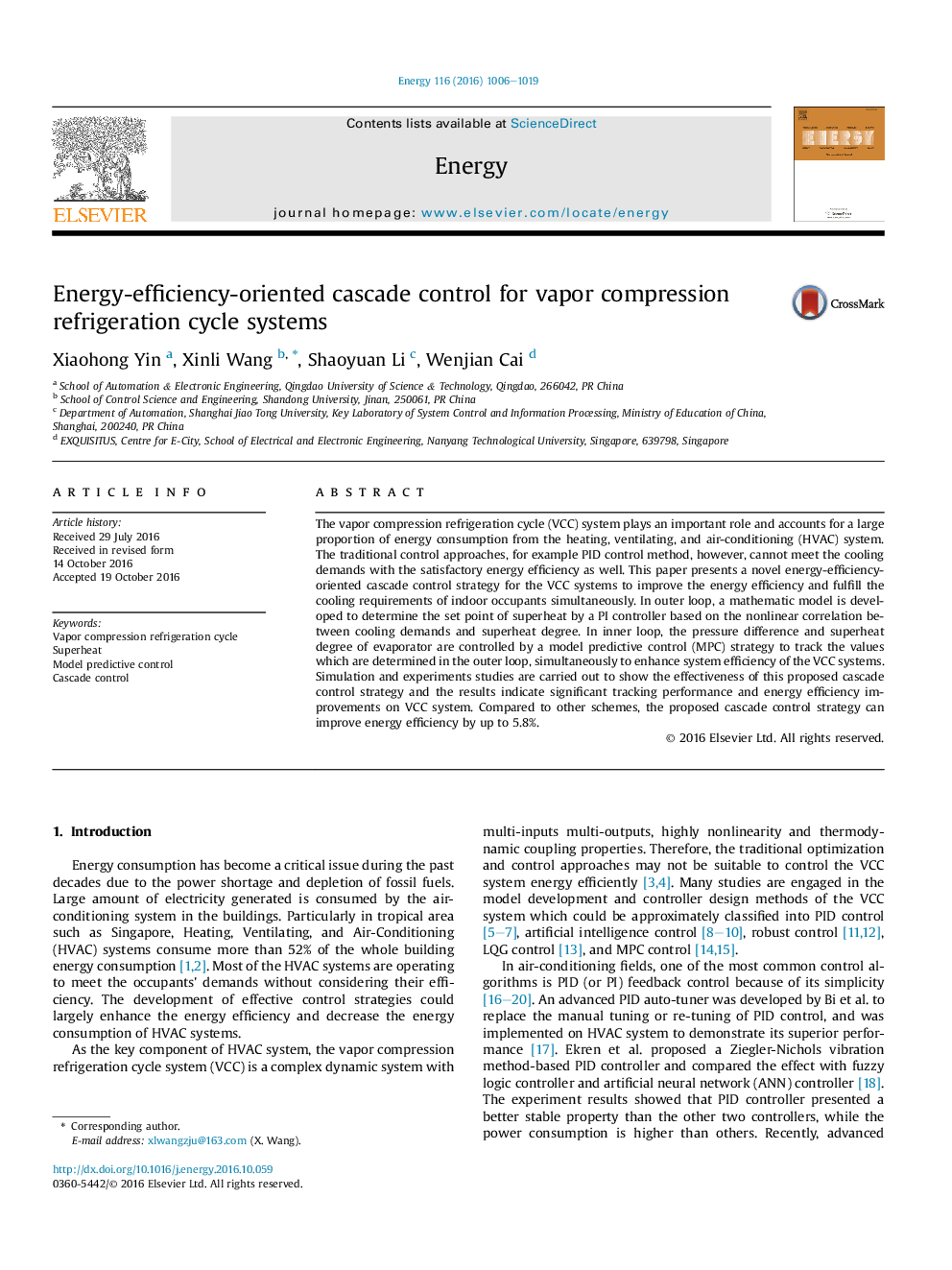| Article ID | Journal | Published Year | Pages | File Type |
|---|---|---|---|---|
| 5477349 | Energy | 2016 | 14 Pages |
Abstract
The vapor compression refrigeration cycle (VCC) system plays an important role and accounts for a large proportion of energy consumption from the heating, ventilating, and air-conditioning (HVAC) system. The traditional control approaches, for example PID control method, however, cannot meet the cooling demands with the satisfactory energy efficiency as well. This paper presents a novel energy-efficiency-oriented cascade control strategy for the VCC systems to improve the energy efficiency and fulfill the cooling requirements of indoor occupants simultaneously. In outer loop, a mathematic model is developed to determine the set point of superheat by a PI controller based on the nonlinear correlation between cooling demands and superheat degree. In inner loop, the pressure difference and superheat degree of evaporator are controlled by a model predictive control (MPC) strategy to track the values which are determined in the outer loop, simultaneously to enhance system efficiency of the VCC systems. Simulation and experiments studies are carried out to show the effectiveness of this proposed cascade control strategy and the results indicate significant tracking performance and energy efficiency improvements on VCC system. Compared to other schemes, the proposed cascade control strategy can improve energy efficiency by up to 5.8%.
Related Topics
Physical Sciences and Engineering
Energy
Energy (General)
Authors
Xiaohong Yin, Xinli Wang, Shaoyuan Li, Wenjian Cai,
